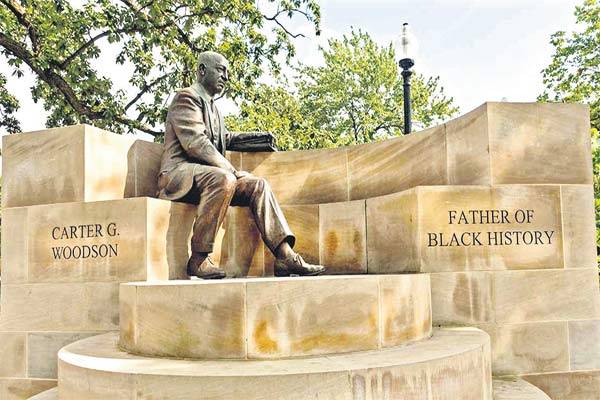February is Black History Month, a commemoration of African American men and women who have made important contributions to America and the globe in sectors such as science, politics, law, sports, the arts, and entertainment, among many others.
While Martin Luther King Jr., Harriet Tubman, Rosa Parks, Muhammad Ali, Jackie Robinson, Langston Hughes, Maya Angelou, George Washington Carver, and Barack Obama are all associated with Black History Month, there are countless other African Americans who have had a significant impact on history: billionaire who made his fortune on his own Madam C.J. Walker, astronaut Mae C. Jemison, open-heart surgeon Daniel Hale Williams, inventor Garret Morgan, media mogul Oprah Winfrey, and Carter G. Woodson, known as the "Father of Black History," all lobbied hard for the bill to be passed.
Black History Month is an annual commemoration of African Americans' achievements and an opportunity to recognize their pivotal role in American history. The celebration, which is also known as African American History Month, evolved from "Negro History Week," which was created by acclaimed historian Carter G. Woodson and other important African Americans. Since 1976, every president of the United States has declared February to be Black History Month. Other countries, including as Canada and the United Kingdom, have dedicated a month to commemorating Black history.
The Association for the Study of Negro Life and History (ASNLH), founded in September by Harvard-trained historian Carter G. Woodson and famous clergyman Jesse E. Moorland, is dedicated to investigating and promoting achievements by Black Americans and other peoples of African descent.
Known today as the Association for the Study of African American Life and History (ASALH), the group sponsored a national Negro History week in 1926, choosing the second week of February to coincide with the birthdays of Abraham Lincoln and Frederick Douglass. The event inspired schools and communities nationwide to organize local celebrations, establish history clubs and host performances and lectures.
In the decades that followed, mayors of cities across the country began issuing yearly proclamations recognizing "Negro History Week." By the late 1960s, thanks in part to the civil rights movement and a growing awareness of Black identity, "Negro History Week" had evolved into Black History Month on many college campuses.
In 1976, President Gerald Ford declared Black History Month, encouraging people to "seize the opportunity to acknowledge the too-often overlooked accomplishments of African Americans in every field of effort throughout our history." Today, Black History Month is a time to recognize African Americans' contributions and legacy throughout American history and society, from activists and civil rights pioneers like Harriet Tubman, Sojourner Truth, Marcus Garvey, Martin Luther King Jr., Malcolm X, and Rosa Parks to leaders in business, politics, science, and culture.
Since 1976, every president of the United States has declared February to be Black History Month, with a specific focus.
"Black Health and Wellness," the subject for Black History Month 2022, explores "the legacy of not only Black scholars and medical practitioners in Western medicine, but also other ways of knowing (e.g., birthworkers, doulas, midwives, naturopaths, herbalists, etc.) throughout the African Diaspora. The 2022 theme considers activities, rituals and initiatives that Black communities have done to be well."




